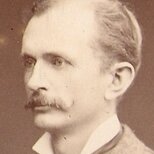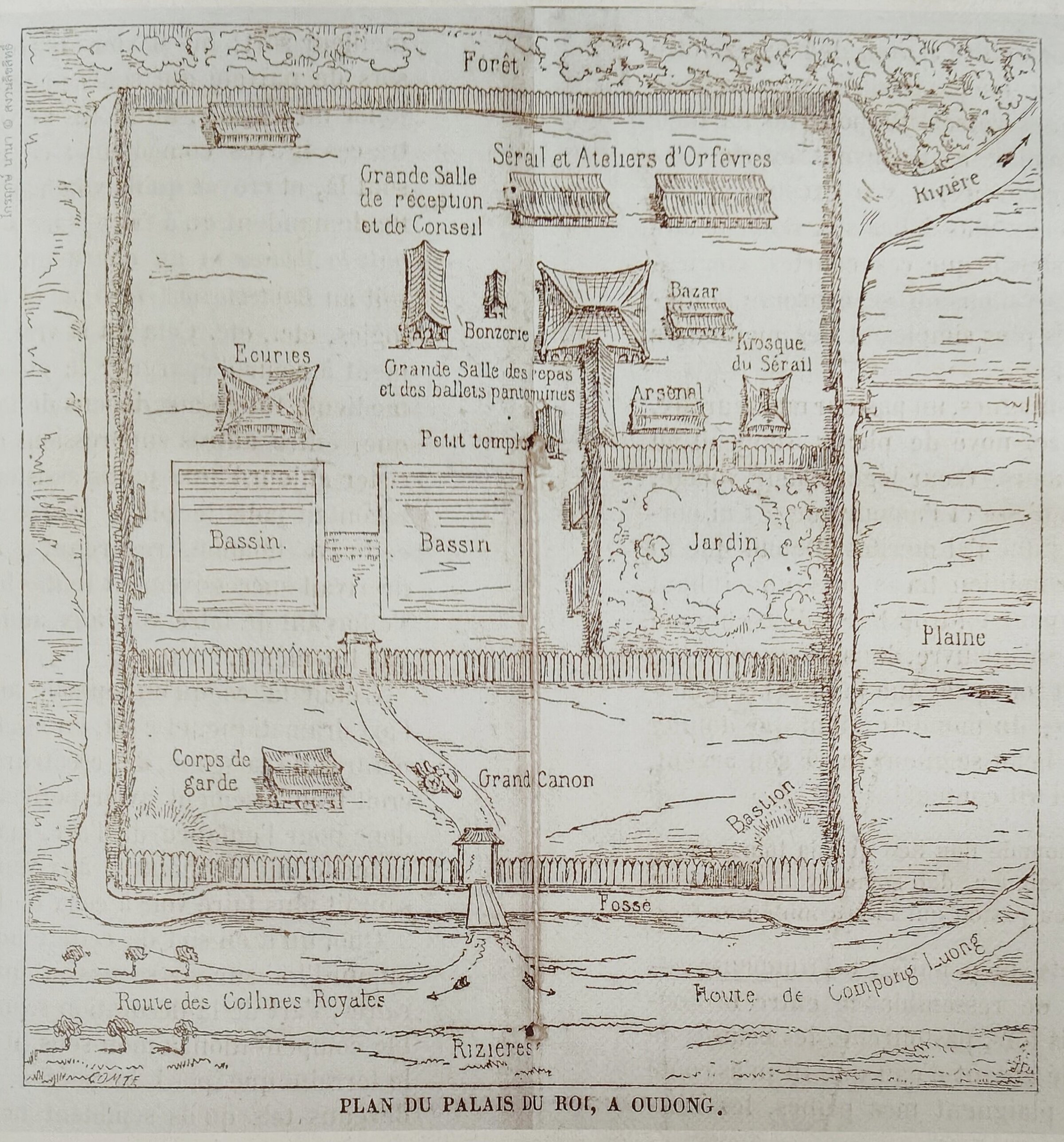Andrew Spooner

Andrew Spooner (1840, Paris — 29 July 1884, Cascade du Bois de Boulogne, Paris) was a French-American merchant established in Saigon [Ho Chi Minh Ville] in 1861, a reporter with French magazine L’Illustration who covered the French army’s assault on Bien-Hoa on 9 Dec. 1861, and an early Western explorer of Cambodia in November-December 1862.
With an American father (Andre-Andrew Spooner(1789-?), a chemical industrialist born in Boston (USA) on 30 Sept 1789, previously married to Charlotte Louis in 1823, Paris) and a French mother (Henriette Victorine Octavie Sebille-Descayes) he both hardly knew, as hew was raised by his eldest half-sister, Spooner apparently never visited the USA but held American citenzship all his life, and his guardian, a M. Courtin, encouraged him to leave for Singapore in 1859 in order to commercialize “Parisian items” such as lace on behalf of Maison Edouard Renard et Cie.
At 21, he had already spent two years in Singapore when he started his activities in French Indochina. He tried his hand in “several commercial ventures, from agriculture (an unsuccessful indigo plantation in 1869) to transport (a bimonthly steamboat service between Saigon and Phnom Penh in 1870) to the provision of urban amenities (gas lighting for Saigon). In the 1870s and early 1880s, he was a partner in a French-operated steam-driven rice mill, one of the few non-Chinese rice mills in Saigon [Rizeries de Cholon, launched with Renard & Cie in 1869].” [see “Rapport sur le Cambodge. Voyage de Sai-Gon à Bat-tam-bang/“Report on Cambodia. A Trip from Saigon to Battambang”, transl. by Nola Cooke, Chinese Southern Diaspora Studies 南方華裔研究雜誌 , Vol. 1, 2007, p 154 – 169].
Mandated to manage the “ferme de l’opium” (opium tax management, which at some point made 25% of the French administration income) from 1867 to 1882, when the institution of the “Douanes et Régies” by Governor Le Myre de Villiers in 1881, brought to an end the occult monopoly of Chinese congregations on opium and alcohol imports — in particular Chinese businessmen Wang Tai, Banhap and Lu Chan, also influential in Phnom Penh and who were his business partners, along with Edouard Cornu, an affairist from Bordeaux -, Spooner was a member of the ‘Conseil privé de la colonie’, a powerful colonial governing body in Cochinchina, and had the upper hand on raw opium distribution in Cambodia. In 1860, he had coined the phrase: “The Chinese are Europeans’ indispensable ennemies.”
In 1862, Spooner explored Cambodia in order to assess the topography and potential resources for the French Navy. His findings were published three years later in a study, “Renseignements topographiques, statistiques et commerciaux sur le Cambodge” [“Topographical, statistical and commercial information on Cambodia”], where he lauded the natural resources and the silk from the country, advocating for the establishment of European trading posts in Phnom Penh. He was working closely with Admiral Louis Bonard.
Back to France in 1882, he married Valentine Charlotte Camille Angamarre (1859−1946) in Paris on 27 November that year, and they had one daughter, Marguerite Adélaïde Spooner, born on 8 June 1884, six weeks before Spooner’s premature death.
Andrew Spooner authored the only known plan of Oudong Royal Palace, site of Cambodian royal power until King Norodom undertook the erection of the new Palace in Phnom Penh starting from 1866 [source: L’Illustration, 30 Jan. 1864 [n 1092]: 72.]
Publications
- “Expédition de Cochinchine: La prise de Bien-Hoa”, L’Illustration, 1st March 1862 [n. 992]: 135 – 8.
- “Correspondance de Cochinchine”, L’Illustration, 30 Jan. 1864 [n 1092]: 71 – 3.
- “Voyage au Cambodge, Renseignements topographiques, statistiques et commerciaux sur le Cambodge”, Annales du commerce extérieur, Chine et Cochinchine 36, May 1865.
- “L’ancien royaume de Khmer, le temple d’Angkor”, L’Illustration, 13 Jan. 1866 [n 1194]: 23 – 26.
- La situation financière de la Cochinchine, Saigon, 1874, 12 p.
- “Exploration aux ruines des monuments religieux de la province de Bati (Cambodge)”, Revue d’histoire des religions, t. 1, 1880: 83 – 101.
Photo: from family tree Marie Odile Martin Descrienne, Geneanet.

